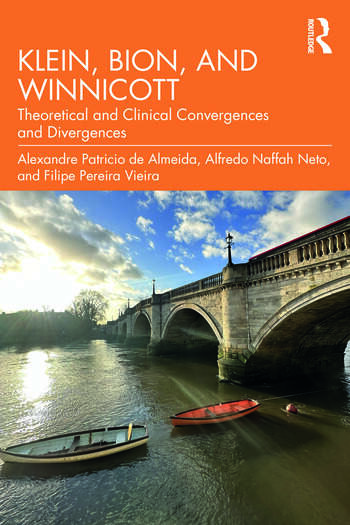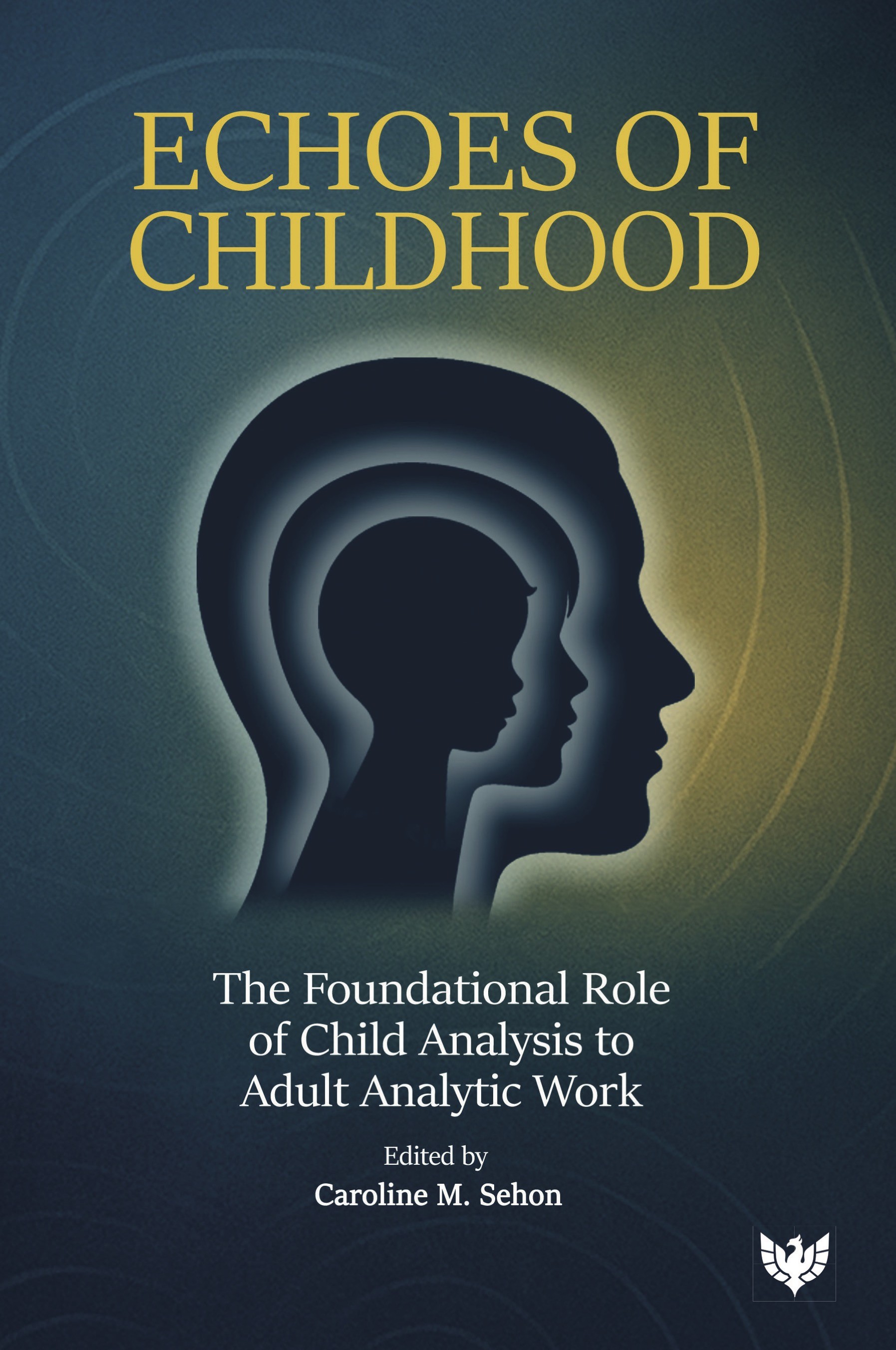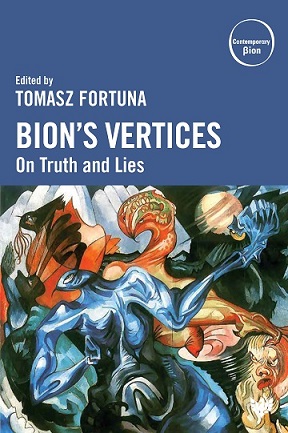Klein, Bion, and Winnicott: Theoretical and Clinical Convergences and Divergences

Book Details
- Publisher : Routledge
- Published : January 2026
- Cover : Paperback
- Pages : 236
- Category :
Psychoanalysis - Catalogue No : 98304
- ISBN 13 : 9781041075875
- ISBN 10 : 1041075871
There are currently no reviews
Be the first to review
This book fills a gap in psychoanalytic literature by offering a rigorous analysis of the intersections and divergences between the three foundational figures in psychoanalysis: Melanie Klein, Wilfred Bion, and Donald Winnicott.
Klein, Bion, and Winnicott: Theoretical and Clinical Convergences and Divergences invites professionals and academics into a comparative dialogue across psychoanalytic traditions and equips them to understand how the ideas of these three authors interweave and unfold in distinct directions, impacting clinical practice and the comprehension of complex psychic processes. By exploring aspects such as Klein’s theory of internal objects, positions, and envy; Bion’s alpha function, reverie, and capacity for thinking; and Winnicott’s notions of emotional development, transitional space, and therapeutic regression, this book provides a comprehensive view of the implications of each theory in the contemporary clinical context.
With copious clinical material and a deep understanding of all 3 subjects, this book is key reading for psychoanalysts, psychotherapists and advanced trainees at all stages of their careers and for anyone wishing to broaden their understanding of the works of Klein, Bion, and Winnicott.
Reviews and Endorsements
In the work before us, we find the convergence of three researchers who, faithful to their Freudian roots, demonstrate what Freud himself once warned us: in psychoanalysis, research and treatment coincide. And if this encounter proves so fertile – this being neither the first, nor the second, nor the last time they write together – it is undoubtedly linked to their differences: differences in theoretical backgrounds, life paths, and generations. This book makes it clear that difference can be profoundly generative, provided that a good portion of the enthusiasm psychoanalysis stirs in us for life is also devoted to a rigorous theoretical-clinical journey – one that is not without good encounters, or rather, excellent ones.
Ana Suy, psychoanalyst, PhD in Psychoanalysis from the State University of Rio de Janeiro (UERJ), and best-selling author
This book invites us to make a fundamental gesture: to recognise that the human cannot be contained within a single theoretical framework. When clinical listening yields too readily to the rigidity of systems, it risks betraying what is most essential to it: transference and its transformative potential in analysis. Honouring this movement requires a willingness to inhabit uncertainty, to move between different authors, to formulate new questions and, above all, to sustain the complexity that underpins our practice. By mapping, with both rigour and sensitivity, some of the theoretical and clinical contributions of Klein, Winnicott and Bion, this work offers not final answers, but a partial cartography of a vast and ever-changing field. Like a compass, it offers orientation – never at the expense of a direct journey through these and other authors. A call to thought in motion: faithful, in that sense, to the Freudian spirit.
Berta Hoffmann Azevedo, psychoanalyst, author, full member and training analyst of the Brazilian Society of Psychoanalysis of São Paulo (SBPSP), with a Master’s degree in Clinical Psychology (PUC-SP). Editor of the Journal of Psychoanalysis (SBPSP) from 2021 to 2024 and current editor of the Brazilian Journal of Psychoanalysis (Febrapsi)
My interest in pshychoanalysis began when I was a teenager facing hard times, and met a psychoanalist. That first session really moved me, somehow made me think something quite magical was about to happen – it gave me hope. It was only the first of many sessions full of life. To my surprise this is what this book is all about. Taking the challenges of contemporary clinic and allowing Winnicott, Klein and Bion to exchange ideas, these three Brazilian authors with outstsnding accademic carreers and creative clinical approaches reaffirm that it is the clinical practice that keeps moving theory – and magically the patient’s being. This analyst, born back in 1979 in that first session, is thankful for this wonderful gift. It has been a pleasure to savour such potent pages.
Vera Maria Guilherme, psychoanalyst, Master in Criminal Sciences from the Pontifical Catholic University of Rio Grande do Sul (PUC-RS), and researcher in the fields of psychoanalysis and gender
Analytic identity is shaped upon a terrain in constant rearrangement, composed of multiple inner voices: theories, supervisors, colleagues, texts, and patients. We are formed through a series of losses, but also through many encounters. Born out of the convergence of three theoretical and clinical journeys – those of Alexandre Patricio de Almeida, Alfredo Naffah Neto, and Filipe Pereira Vieira – this book emerges from the desire to think of psychoanalysis as a living field, one capable of engaging with the transformations of subjectivity and the challenges posed by contemporary clinical work. By bringing Freud, Klein, Bion, and Winnicott into dialogue – sometimes in harmony, often in tension – the authors affirm their belief in the creative potential of difference. It is this plurality that keeps psychoanalysis alive, able to respond to the wounds of our time without submitting to rigid models or static certainties. To chart these conceptual landscapes is to follow the traces and fragments each author has left behind – an undertaking that demands stamina, a willingness to welcome the unfamiliar within the familiar, and the courage to sustain contradiction. For an analyst to find their own voice – rather than simply echoing inherited discourses – psychoanalysis must be held “by heart”, etched on the string of the heart, as the ancient Greeks would say. This gesture entails recognising, embracing, and transforming one’s theoretical and clinical heritage, thereby making room for a living form of listening.
Helena Cunha Di Ciero, full member of the Brazilian Psychoanalytic Society of São Paulo (SBPSP), affiliated with the International Psychoanalytical Association
Table of Contents
1. Psychoanalytic Interpretation in Klein and Winnicott: A Comparative Study
2. The Notion of Fantasy in Klein and Winnicott
3. The Depressive Position according to Klein and Winnicott
4.The Capacity to Think: A Perspective from Bion and Winnicott
5. The Process of Symbolisation in Klein and Bion
6. The basic function of the mother (and of the analyst) according to Bion and Winnicott, with a focus on the concepts of reverie and holding
7. Regression in Psychoanalysis: Contrasts Between Klein and Winnicott
8. The Concept of the Superego According to Klein and Winnicott
9. The Body as the Support of the Psyche-Soma in Winnicott versus the Body as the Raw and Sensory Basis of Thought in Bion (Somatic Reverie) 10. The origin of psychosis according to Bion and Winnicott
About the Author(s)
Alexandre Patricio de Almeida is a Psychoanalyst with a master’s and PhD in Clinical Psychology from PUC-SP. He has authored several scientific articles and books and is a Finalist for the Jabuti Literature Prize. He is also the creator of the podcast Psicanálise de Boteco and is currently undertaking a postdoctoral fellowship at PUC-SP.
Alfredo Naffah Neto is a Psychoanalyst with a master’s degree in philosophy from the University of São Paulo (USP) and a PhD in Clinical Psychology from the Pontifical Catholic University of São Paulo (PUC-SP), where he is a full professor in the Postgraduate Programme in Clinical Psychology. He has also authored several books and scientific articles.
Filipe Pereira Vieira is a Psychoanalyst with a master’s degree and currently a doctoral researcher in Clinical Psychology at the Pontifical Catholic University of São Paulo (PUC-SP). He has authored several scientific articles and books and is the co-creator of the podcast Psicanálise de Boteco.
Customer Reviews
Our customers have not yet reviewed this title. Be the first add your own review for this title.
You may also like
Echoes of Childhood: The Foundational Role of Child Analysis in Adult Analytic...
Caroline M. Sehon
Price £28.79
save £3.20
Attics and Basements: The Evocative, Expressive and Embracing Functions of...
Salman Akhtar
Price £25.19
save £2.80







